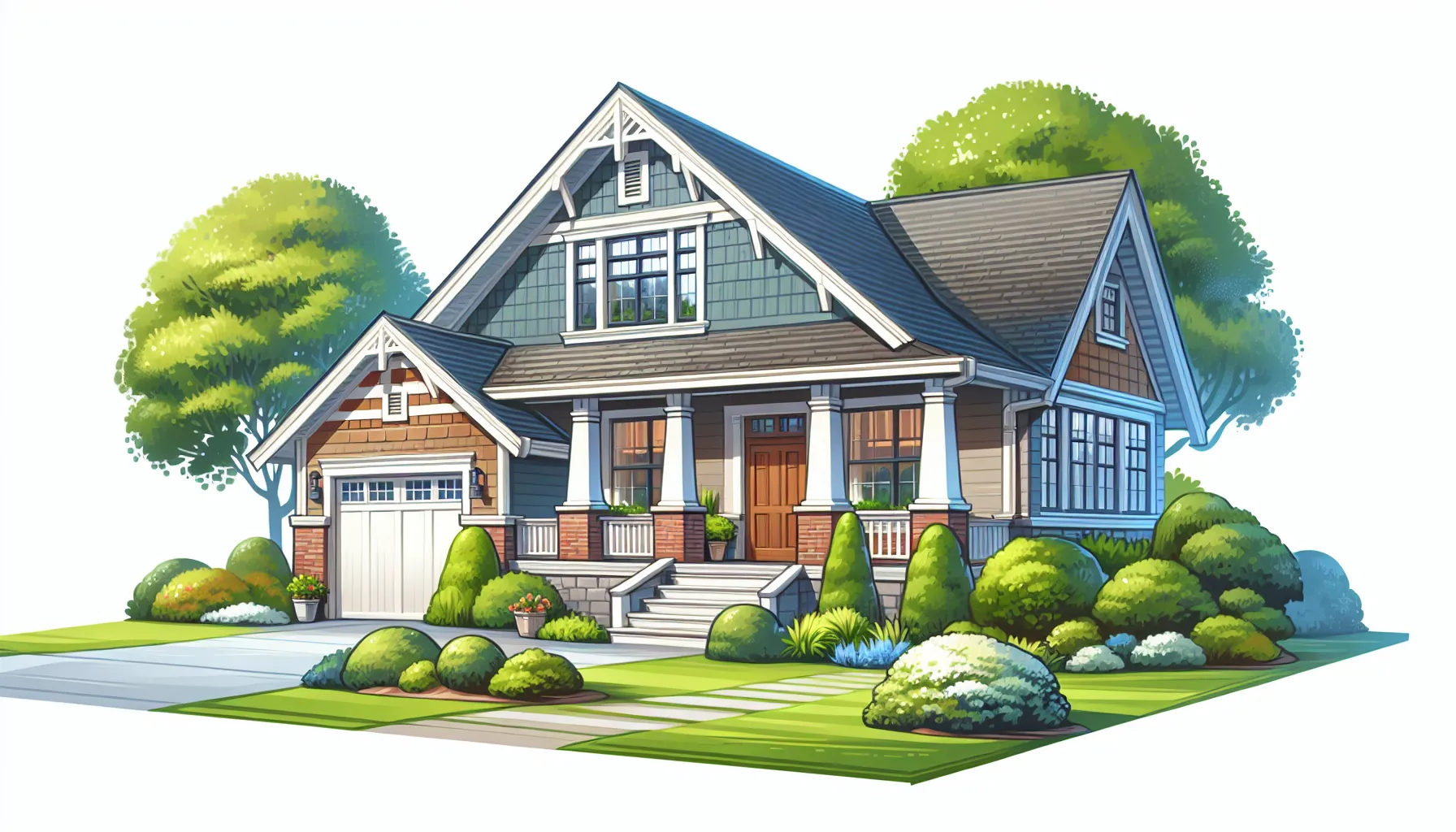Key Takeaways
- Understanding the home selling process involves several stages, including preparation, listing, marketing, negotiation, and closing, each affecting the overall timeline.
- Nationally, the average time to sell a house ranges from 65 to 93 days, significantly influenced by market conditions and pricing strategies.
- Location plays a critical role in selling time; desirable neighborhoods typically see faster sales compared to less favorable areas.
- Well-maintained properties with good presentation, such as staging and necessary repairs, can lead to quicker sales and better offers.
- Engaging a real estate professional can provide valuable insights and help set competitive prices based on local market trends.
- Effective marketing strategies, including high-quality listings and social media promotion, can accelerate the selling process and enhance buyer interest.
Selling a house can feel like a daunting task, especially when we’re left wondering how long the process will actually take. In 2025, the timeline for selling a home can vary widely based on factors like location market conditions and pricing strategy. Whether we’re looking to move quickly for a new job or simply want to downsize, understanding the average time it takes to sell a house helps us set realistic expectations.
In this article, we’ll break down the key elements that influence the selling timeline—from preparing our home for sale to closing the deal. We’ll also explore tips on how to expedite the process and what to anticipate at each stage. By the end, we’ll be equipped with the knowledge to navigate the home-selling journey with confidence and clarity
.
Overview of the Home Selling Process
The home selling process involves several key stages, each affecting the overall timeline. Understanding these stages can help us navigate the complexities with ease. It typically starts with preparing the home for sale, including decluttering, repairs, and staging. These preparations can take days to months, influenced by the property’s condition and our chosen improvements.
Next, we move to the listing phase. Pricing the home correctly is critical; overpricing can extend the selling time, while underpricing may lead to financial loss. Engaging a real estate professional can provide valuable market insights, helping us set a competitive price based on comparable sales in our area. This stage often lasts a few weeks, but it may vary with market demand.
Once listed, marketing the property becomes essential. Platforms like MLS, social media, and open houses attract potential buyers. The duration of this phase can differ significantly; homes in hot markets may attract offers within days, while others may require weeks or even months. Active engagement in marketing helps us gain maximum exposure.
Upon receiving offers, we enter the negotiation stage. This can range from immediate acceptance to multiple rounds of counteroffers. Typically, negotiations conclude within one to two weeks, assuming both parties communicate effectively. After an agreement, we proceed to the closing phase, which usually takes 30 to 45 days. The timeline may vary based on state regulations and the buyer’s financing.
Understanding each stage of the home selling process empowers us to manage expectations and make informed decisions. As we engage in our own selling journey, keeping these timelines and critical steps in mind can enhance our experience and outcomes.
Factors Influencing the Time to Sell a House

Understanding the factors that influence the time it takes to sell a house helps us manage expectations and streamline the selling process. Key elements like location, market trends, property condition, and presentation directly contribute to the timeline.
Location and Market Trends
Location plays a crucial role in determining how quickly a house sells. Homes situated in desirable neighborhoods with excellent schools, amenities, and low crime rates often attract buyers faster than those in less favorable areas. Market trends also impact selling time. In a seller’s market—where demand exceeds supply—properties typically sell more rapidly. Conversely, a buyer’s market—where supply surpasses demand—can lead to longer selling periods. For instance, homes in urban settings might sell in an average of three months, while those in rural areas may linger for six months or longer. Staying informed about local market dynamics helps us price competitively and adapt our strategies to maximize efficiency.
Property Condition and Presentation
The condition and presentation of our property significantly affect potential buyers’ perceptions and offers. Well-maintained homes with necessary repairs completed generally sell quicker than those requiring significant work. Presentation matters too; staging a home can enhance its appeal, making it easier for buyers to envision themselves living there. Basic improvements, such as fresh paint, landscaping, and decluttering, can result in faster sales. For instance, homes that are professionally staged tend to sell 73% faster than those that aren’t. By investing time and effort into preparing our property, we can create a positive first impression that accelerates the selling process.
Average Timeframes for Selling a House

Understanding the average timeframes for selling a house helps set realistic expectations for sellers. Factors like location, market conditions, and home features affect these timelines significantly.
National Averages
Nationally, the average time to sell a house ranges from 65 to 93 days, depending on the real estate market’s health. Homes in a seller’s market often sell faster, frequently closing in about 30 to 45 days. The National Association of Realtors reports that homes listed at competitive prices garner more interest and can close more quickly. For example, homes priced just below market value may attract multiple offers, expediting the sale. Conversely, homes located in areas with low demand might stay on the market longer, pushing timeframes to 120 days or more. Being aware of these averages provides a framework for our selling strategies.
Regional Variations
Regional differences in real estate markets lead to varying selling timeframes. In major cities, where demand is high, homes often sell within 30 to 45 days, while rural areas can see listings lingering for 90 to 120 days or longer. For instance, homes in metropolitan areas like San Francisco or New York attract buyers rapidly due to their vibrant job markets and amenities. Conversely, properties in less populated regions of the Midwest may experience slower sales. State-specific regulations and local trends also affect how long a home sits on the market. By familiarizing ourselves with local conditions, we can tailor our approaches for swift and effective transactions.
Time spent understanding these variables pays off, as informed decisions lead to more successful sales.
Strategies to Speed Up the Selling Process
Selling a home can take time, but certain strategies can significantly accelerate the process. Our approach involves effective pricing, targeted marketing, and preparing the property for buyers.
Pricing Your Home Right
Setting the right price is crucial in attracting potential buyers quickly. We analyze comparable homes in the neighborhood to establish a competitive price that aligns with current market trends. Overpricing can lead to prolonged listings, while underpricing may result in financial loss. Consider engaging a real estate professional who can provide a detailed market analysis. Factors like location, condition, and recent sales in your area influence pricing strategies. We often find that homes priced within 5% of market value sell significantly faster than those priced too high or too low.
Effective Marketing Techniques
Utilizing effective marketing techniques helps capture buyer interest quickly. We recommend listing the home on popular real estate platforms, such as MLS and real estate apps, to gain maximum visibility. High-quality photos and virtual tours showcase the property, allowing buyers to envision themselves living there. Social media marketing also plays a vital role; sharing listings on platforms like Facebook and Instagram can reach a broader audience. Hosting open houses and private showings enables potential buyers to experience the home firsthand. Research shows that homes marketed effectively can sell up to 50% faster than those with minimal exposure.
By implementing appropriate pricing strategies and robust marketing efforts, we’re positioned to expedite the selling process, ensuring a smoother transaction from start to finish.
Conclusion
Navigating the home selling process in 2025 can be complex but understanding the timeline and key factors helps us make informed decisions. By focusing on preparation pricing and effective marketing strategies we can significantly reduce the time it takes to sell our property.
Whether we’re in a seller’s market or facing a slower market understanding our local conditions allows us to adapt our approach. With the right preparation and mindset we can achieve a successful sale in a timeframe that meets our needs. Remember that each step we take plays a crucial role in attracting buyers and closing the deal efficiently.
Frequently Asked Questions
What factors influence how long it takes to sell a house?
The timeline for selling a house depends on various factors, including location, market conditions, pricing strategy, and the property’s condition. Homes in desirable areas or seller’s markets typically sell faster, while properties in less favorable locations may take longer. Additionally, preparation and presentation play key roles in attracting buyers quickly.
How can I prepare my home for sale?
Preparing your home for sale involves decluttering, making necessary repairs, and staging the property to enhance its appeal. This process can take anywhere from days to months, depending on the home’s condition. Simple improvements, such as painting and landscaping, can significantly increase buyer interest.
What is the average time to sell a house in 2025?
As of 2025, the average time to sell a house nationally ranges from 65 to 93 days. However, homes in a seller’s market may sell faster, often within 30 to 45 days, while those in low-demand areas might stay on the market for 120 days or more.
Why is pricing strategy important when selling a house?
Setting the right price is crucial in attracting potential buyers. Overpricing can lead to longer sales times and eventual price reductions, while underpricing may cause financial loss. A competitive pricing strategy based on comparable homes can significantly expedite the selling process.
How does marketing affect the home-selling timeline?
Effective marketing is essential for attracting buyers and can vary in duration. Utilizing platforms like MLS and social media, alongside high-quality photos and virtual tours, enhances visibility. Strong marketing strategies can lead to quicker sales by increasing interest in your property.
What role does the negotiation phase play in selling a house?
The negotiation phase typically lasts from one to two weeks, depending on the responsiveness of both buyers and sellers. During this stage, parties discuss offers and counteroffers. Timely and effective communication can help expedite this phase, contributing to a faster overall selling timeline.
How long does the closing process usually take?
The closing process generally takes about 30 to 45 days, influenced by state regulations and the buyer’s financing. Factors such as the complexity of the sale and any contingencies can affect this timeline. Proper preparation and timely communication can help ensure a smoother closing process.
What improvements can help sell my home faster?
Simple improvements, like decluttering, painting, and landscaping, can make your home more appealing to buyers. Additionally, professionally staging your home can lead to faster sales, with staged homes selling 73% faster than unstaged ones. Enhancements that boost curb appeal and interior presentation are key.






